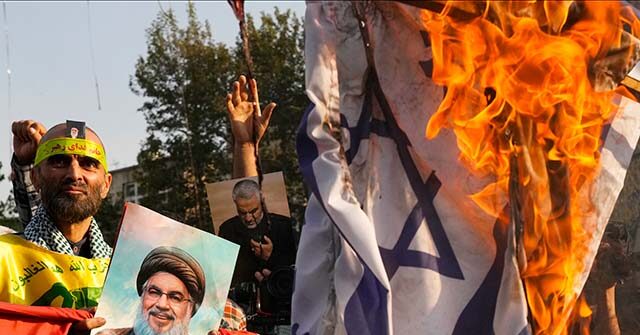On Monday, the United Nations Security Council convened an emergency meeting at the request of Iran, which has been labeled by many as a primary state sponsor of terrorism. The meeting was marked by Iran’s allies, primarily Russia and China, condemning Israel for its military strikes on Iranian missile manufacturing sites and significant military infrastructure. The ongoing hostilities stem from Iran’s extensive support for terrorist factions in the region, notably Hamas, which instigated the current conflict by launching a devastating attack on Israel on October 7, 2023, resulting in the deaths of over a thousand individuals. Notably, Hamas has been accused of committing heinous acts during this assault, which has triggered a multifaceted conflict involving other Iranian-aligned militant groups such as Hezbollah and the Yemeni Houthis.
The recent military engagements intensified when the Israel Defense Forces (IDF) executed airstrikes on early Saturday targeting Iranian facilities responsible for missile production. The IDF confirmed the operation’s success in neutralizing imminent threats posed by missiles launched from Iranian territory. Such actions were undertaken in response to several Iranian missile barrages aimed at civilian population centers in Israel, notably in April and October, with the IDF managing to intercept nearly all the projectiles during these attacks, establishing a significant defensive capability against Iranian aggression. The IDF emphasized that these missile threats jeopardized the safety of Israeli citizens, necessitating preemptive military action.
In the Security Council session, Russia’s ambassador, Vassily Nebenzia, notably downplayed Iran’s aggressive posture and directed criticism at Israel. He framed Israeli actions as provocations aimed at escalating tensions while declaring that Iran’s responses demonstrated remarkable restraint. This narrative aligns with Russia’s ongoing geopolitical interests in the region, as it continues to support Iran amid the widening conflict. Nebenzia characterized Israel’s military response as excessive and framed it within a broader context of Western aggression against Iran, dismissing the threats posed by Iranian missile technology and affiliations to terrorist organizations like Hamas and Hezbollah.
The Chinese representative echoed similar condemnations of Israeli actions while advocating for a ceasefire in Gaza, reflecting China’s concern for regional stability amid rising tensions. The ambassador criticized perceived Western hegemony within the Security Council and lamented the dismissal of previous resolutions calling for a ceasefire, asserting that Israel’s aggressive military operations directly undermine the authority of the United Nations. In contrast, U.S. Ambassador Linda Thomas-Greenfield articulated staunch support for Israel’s right to defend itself but cautioned against further escalation of hostilities with Iran. The U.S. position highlighted that Iran was attempting to manipulate narratives to project itself as a victim while continuing its destabilizing activities throughout the region.
As the meeting concluded without any resolutions or tangible actions by the Security Council, Iranian officials unabashedly reiterated their confrontational stance regarding Israel. President Masoud Pezeshkian vowed to counter Israeli threats and retaliate with greater force if Israel persisted in undermining Iranian security. In a statement that reflected the defiance of the Iranian leadership, the “supreme leader” Ayatollah Ali Khamenei asserted that Israeli decisions reflected a gross underestimation of Iran’s capabilities and resolve, reinforcing the perception that Iran is poised to escalate its confrontational rhetoric and military preparedness against perceived threats.
The contention in the Security Council not only underscores the complexities of Middle Eastern geopolitics but also illustrates the diverging narratives among global powers regarding the conflict. Russia and China appear to stand in solidarity with Iran, attributing the conflict’s dynamics to Israeli aggressions and Western interventionism, while the United States remains committed to supporting Israel’s defense initiatives amidst this regional turmoil. Ultimately, the meeting reflects a larger ideological battle playing out within international diplomacy, driven by varying interpretations of justice, self-defense, and state sponsorship of terrorism. The ongoing situation suggests a tenuous balance in a volatile region, where military actions continue to overshadow diplomatic resolutions.

